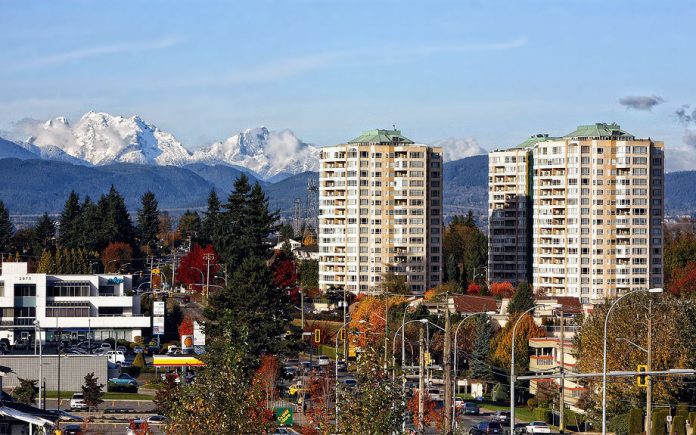Eight months ago, Abbotsford embraced 160 Syrian refugees into the community. On Wednesday, November 1, UFV held an event in their honour, titled Present-Day Newcomers Fleeing War Torn Regions: Receptivity and Integration.
The event offered a chance for Abbotsford to reflect on the process of integrating newcomers into our community, an ongoing process even today.
UFV peace and conflict studies teaching chair Steven Schroeder opened the event in the filled auditorium.
“The refugee crisis can feel at times like an existential problem. It’s important to see the faces behind the crisis,” said Schroeder, acknowledging the nearly 20 Syrian teenagers sitting at the front of the room. “When facing a decision to help people suffering around the world, we need to ask ourselves, what kind of world do I want to live in? What kind of Canada do I want to live in? What kind of a person do I want to be?”
The new Syrian-Canadians occupied the first two rows of the auditorium. Teenagers and young adults, they switched between rapt attention for the speaker and restless shifting. The young men and women whispered between each other and tittered excitedly.
“They are very excited to be in the university,” said Palwinder Kelay, supervisor of Abbotsford community services’ Moving Ahead program. “They have learned English very quickly, and several of them are ready to attend UFV in the new year.”
Palwinder was one of three speakers who took to the podium to describe their experiences working to integrate the refugees. She described the trials of helping the 44 adults and 116 children integrate into Abbotsford with only 42 hours of notice. “We were completely underprepared.”
The Syrians arrived at the Sandman Hotel in Abbotsford on February 22, which would end up being their home for the next five weeks. Families filed off of buses into the hotel lobby while Palwinder rushed to organize the fleet. One of the buses had mistakenly brought a group of refugees that was supposed to remain in Vancouver. A young boy had caught a virus and he and his father had remained in the Vancouver hospital. Within hours the upper floor of the hotel was bustling with the new families cooking, and sleeping, the children running through the halls and playing in the stairwell.
“The children loved pulling the fire alarm,” said Palwinder, amidst embarrassed laughter from the Syrian attendees. Palwinder told stories of massive soccer matches behind the building, children making themselves sick from elevator rides, and the entirety of the parking lot being covered with elaborate chalk drawings. Palwinder’s voice swelled with emotion as she recounted their experiences, “It was like we had created a new refugee camp in the Sandman Hotel.”
Palwinder and her team spent those five weeks securing permanent housing for the families. This proved to be impossibly difficult within a booming housing market, but in some instances local homeowners put their hearts before their wallets. “We went to a rental house listed at $1,600,” Palwinder recalled. “The place was packed, and by the end of the day the price had risen to $2,200. I walked up to the owner and told him what we were doing; I said, ‘I need this home and I only have $1,400 dollars.’ The next day he called and said the house was ours.”
Jennifer Mpunbu, program coordinator for the refugee assistance program at MCC, and Jake Stelpstra, a spokesman for the local private refugee sponsorship team also spoke at the event.
Jake and his co-sponsors helped relocate five refugee men from Eritrea, Africa, and worked to find them housing in Abbotsford. He expressed how “overwhelmed” the young refugee men felt by how “kind, polite, and helpful Canadians are.”
Jennifer related her expertise regarding efficient and helpful refugee integration within the local communities. She continually stressed what she called “the most important obstacle facing newly arriving refugees,” which is the language barrier. “Language is the most important thing,” she said.
Jennifer lamented the lack of services available for non-English speaking refugees arriving in Canada: mental health services, language classes, and assistance for cultural adjustment to name a few.
Between presentations, Vancouver author and poet Connie Braun read poems rooted in themes of her own Mennonite ancestor’s struggles as refugees fleeing to Canada.
Connie’s poem Izmir spoke of her tour through Turkey. “We soon discovered the story our cameras didn’t tell … babies handed through barbed wire, whole families swallowed by a sea that had seemed so brilliant.”


